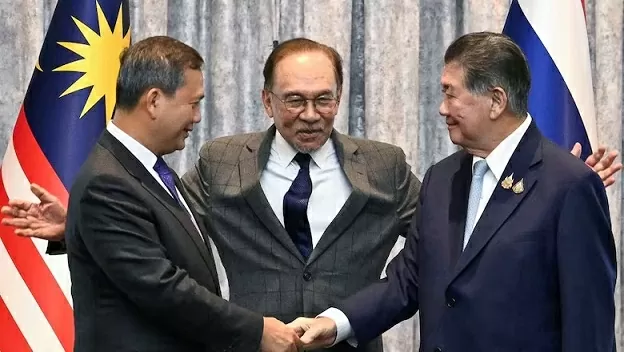 |
| From left to right: Cambodian Prime Minister Hun Manet, Malaysian Prime Minister Anwar Ibrahim and acting Thai Prime Minister Phumtham Wechayachai at a press conference after talks on July 28 in Malaysia. (Source: CBC) |
Affirming ASEAN's central role
Bernama news agency (Malaysia) recently published an analysis article including comments from experts assessing that Malaysia's proactive approach to crisis management contributes to promoting ASEAN's central role.
Specifically, Dr. Rahul Mishra, Associate Professor at the Center for Indo- Pacific Studies at Jawaharlal Nehru University (India) and scholar Asma Rassy, a researcher at the University of Malaya (Malaysia), commented that Malaysia's successful mediation in the Thailand-Cambodia border dispute marked a turning point in ASEAN diplomacy and this could be further strengthened if the Myanmar crisis was also handled skillfully.
On July 28, Malaysia surprised the region by brokering a swift and unconditional ceasefire between Cambodia and Thailand, with Prime Minister Anwar Ibrahim personally inviting Cambodian Prime Minister Hun Manet and then-acting Thai Prime Minister Phumtham Wechayachai to Malaysia's administrative capital Putrajaya, convincing both leaders to stop border clashes between the two countries.
While the immediate outcome is humanitarian relief, scholars say the broader significance lies in Malaysia leveraging its ASEAN chairmanship into a de facto crisis management role, facilitating negotiations.
Malaysia has also pioneered the use of observer teams, updating compliance and ceasefire plans that are accessible to all 10 ASEAN members. According to analysts, the 2025 ASEAN Chair has responded with extraordinary speed, with defense attaches dispatched and the ASEAN Monitoring Group established within days.
The Malaysian Prime Minister has laid out a concrete three-point ceasefire framework based on on-the-ground verification. Such a systematic approach has helped position the 2025 ASEAN Chair as the de facto regional crisis management hub.
Internal solidarity, raising position
Analysts argue that by convening both parties in Putrajaya, facilitating discussions between the parties, establishing an ASEAN-supported ad hoc monitoring team, and integrating monitoring into ASEAN resolutions, Malaysia has secured this mediation process from outside influence.
Malaysia has laid the foundation for reconciliation based on ASEAN principles and conducted the negotiations in the country. Such a step has clearly strengthened ASEAN centrality, demonstrated the importance of centrality and affirmed the internal solidarity of the Association.
The mediation efforts of the 2025 ASEAN Chair demonstrate that ASEAN centrality is not just a matter of “lip service” but can be demonstrated through strong ASEAN-led mechanisms. This practical approach also contributes to enhancing ASEAN’s position in an increasingly volatile Indo- Pacific region.
Analysts argue that by inviting both the US and China into the crisis management framework while keeping them within ASEAN-defined parameters, the Malaysian Prime Minister has transformed external competition into a regulated process under regional coordination. So, according to experts, Malaysia is doing well as ASEAN Chair 2025 by deftly shaping a constructive diplomatic mechanism.
Source: https://baoquocte.vn/vai-tro-trung-tam-cua-asean-khong-vo-hinh-327189.html


![[Photo] General Secretary To Lam receives US Ambassador to Vietnam Marc Knapper](https://vphoto.vietnam.vn/thumb/1200x675/vietnam/resource/IMAGE/2025/9/29/c8fd0761aa184da7814aee57d87c49b3)
![[Photo] General Secretary To Lam chairs the meeting of the Central Steering Committee on preventing and combating corruption, waste and negativity](https://vphoto.vietnam.vn/thumb/1200x675/vietnam/resource/IMAGE/2025/9/29/fb2a8712315d4213a16322588c57b975)

![[Photo] National Assembly Chairman Tran Thanh Man chairs the 8th Conference of full-time National Assembly deputies](https://vphoto.vietnam.vn/thumb/1200x675/vietnam/resource/IMAGE/2025/9/29/2c21459bc38d44ffaacd679ab9a0477c)
![[Photo] Many streets in Hanoi were flooded due to the effects of storm Bualoi](https://vphoto.vietnam.vn/thumb/1200x675/vietnam/resource/IMAGE/2025/9/29/18b658aa0fa2495c927ade4bbe0096df)
![[Photo] General Secretary To Lam attends the ceremony to celebrate the 80th anniversary of the post and telecommunications sector and the 66th anniversary of the science and technology sector.](https://vphoto.vietnam.vn/thumb/1200x675/vietnam/resource/IMAGE/2025/9/29/8e86b39b8fe44121a2b14a031f4cef46)










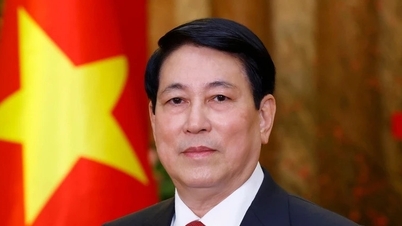













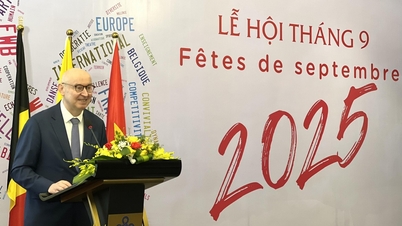

















































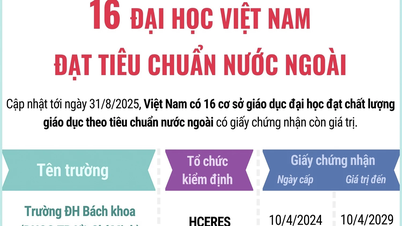



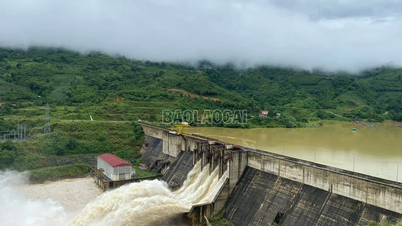


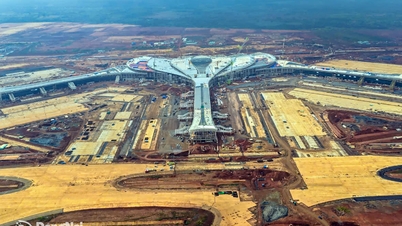














Comment (0)